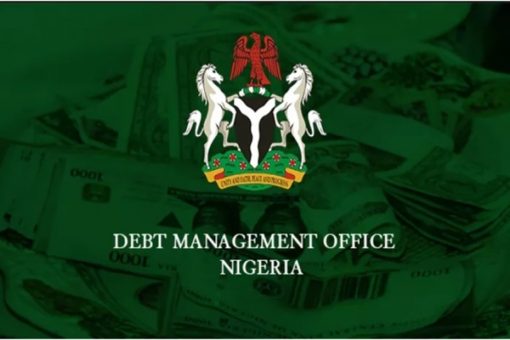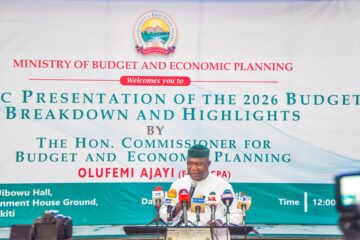FG unveils debt restructuring, revenue mobilisation plans

The federal government has announced a comprehensive debt restructuring strategy aimed at freeing up resources for critical infrastructure development.
This forms a key component of the 2025-2027 Medium-Term Fiscal Framework and Fiscal Strategy Paper (MTFF/FSP).
With declining household and private sector spending, the government plans to secure long-term non-commercial facilities with tenors ranging between 10 and 50 years and a moratorium of five to seven years.
According to the MTEF/FSP document released by the Budget Office of the Federation, the provision for debt service is expected to rise significantly due to the country’s large debt profile and the Central Bank of Nigeria’s Monetary Policy Rate (MPR), which now stands at 27.25 percent as of September 2024.
“Debt service projections will be finalized once the Debt Management Office (DMO) estimates the financing gap for the 2025 budget,” the document said.
The MTFF/FSP has outlined ambitious revenue and expenditure goals for 2025. Under the revenue, the federal government is targeting N34.8 trillion, with N19.6 trillion from oil, N5.7 trillion from non-oil taxes, N2.87 trillion from government-owned enterprises (GOEs), N3.6 trillion from independent revenue sources, and N4.8 trillion from other sources.
The 2025 expenditure goal of the government is N47.9 trillion, comprising N14.2 trillion for non-debt recurrent expenditure, N16.4 trillion for aggregate capital expenditure, N15.38 trillion for debt service, and N2 trillion for other expenditures.
The government acknowledged persistent revenue mobilization challenges, low oil and gas revenues, and escalating costs of fuel subsidies as contributors to the federal budget deficit. However, recent reforms, including the removal of fuel subsidies, reduction in tax waivers, and higher crude oil production, are expected to alleviate fiscal pressures.
To bridge fiscal deficits, the government will prioritize cheaper and more flexible borrowing options and implement revenue mobilization measures. Borrowing, the document said “will be a last resort, used only for long-term growth projects or critical needs”.
In 2025, efforts will be intensified to improve fiscal management by strengthening the budget process and scrutinizing spending by ministries, departments, and agencies (MDAs). Key measures include: prioritizing ongoing projects over new ones; streamlining administrative costs and merging overlapping agency functions; enhancing treasury controls to curb financial mismanagement and corruption and reviewing fiscal incentives to increase transparency in revenue collection.
According to the document, “The need to create new agencies will be rigorously evaluated. Only when no agency exists that performs the same function that such need may be considered; Agency-by-agency review of functions, expenditure patterns and staffing levels, outputs and results, and identification of functions to privatize.”
The framework also emphasizes national security as a top priority. Investments will focus on military equipment, barracks accommodation, personnel welfare, and cybersecurity. Collaborative efforts among security services will address challenges such as banditry, terrorism, and kidnapping to create a safer environment for economic growth.
The government aims to overhaul internal security strategies to safeguard lives, properties, and investments nationwide. Improved security conditions are expected to stimulate economic activity and social life (including nightlife, which constitutes between 24-40 percent of economies of states where they are functioning well), enhance farm productivity, and boost access to education, especially for vulnerable groups like girls.
Assumptions for 2025-2027 MTEF/FSP
The federal government has also outlined ambitious economic projections and revenue strategies for 2025-2027 in its recently released Medium-Term Expenditure Framework and Fiscal Strategy Paper (MTEF/FSP).
Central to the plan is achieving a 3.68 percent economic growth rate in 2025, compared to 2.74 percent in 2023 and 3.55 percent in 2024, amid a shrinking dollar-denominated GDP and ongoing fiscal challenges.
Nominal GDP is forecasted to grow from N293.74 trillion in 2024 to N352.36 trillion in 2025, primarily driven by inflation-related consumption. However, in dollar terms, the GDP is expected to contract significantly, falling by nearly 40 percent, from $348.4 billion in 2023 to $218.3 billion in 2024, reflecting exchange rate pressures.
Inflation, which averaged 32.8 percent in the first half of 2024, is projected to decline to 16.94 percent in 2025, offering potential relief to households and businesses.
The document noted that the Central Bank of Nigeria (CBN) anticipates stabilizing the naira at N1,400 to $1 by 2025, “contingent on improved economic activities and reforms in the oil sector”. Crude oil remains a key revenue driver, with a conservative benchmark price of $75 per barrel for 2025, slightly lower than $77.96 in 2024, ensuring budget realism.
The government is intensifying efforts to expand non-oil revenue streams to address fiscal gaps. Tax administration reforms will target improved compliance, closing loopholes, and bringing more businesses and individuals, especially from the informal sector, into the tax net.
Import duties, excise fees, and levies will benefit from the effective implementation of existing tax laws, the Common External Tariff, and the Africa Continental Free Trade Agreement (AfCFTA) while Companies Income Tax (CIT) forecasts assume growth in economic activities, stricter compliance, and a broadened tax net.
The MTEF/FSP document projects that consumption expenditure subject to Value Added Tax (VAT) is expected to rise from N97.32 trillion in 2025 to N119.42 trillion in 2027. Although the VAT rate remains at 7.5 percent, its increase remains a policy option.
Revenue from electronic transactions is projected to grow as the volume of transactions rises, with 4.6 billion transactions expected in 2025. Stamp duty estimates are based on projected capital expenditures of N13.9 trillion for 2025, with gradual increases in subsequent years.
The government-owned enterprises (GOEs) are expected to significantly boost independent revenue collections through stricter fiscal discipline and reduced leakages. Measures introduced by the Ministry of Finance Incorporated (MOFI) will further enhance returns on government-owned investments.
Tax waivers and concessions will be capped at N3.22 trillion for 2025, ensuring only appropriated tax expenditures are eligible. Beneficiaries may be required to pay statutory fees upfront, subject to refunds upon proof of eligibility.
.NATION











